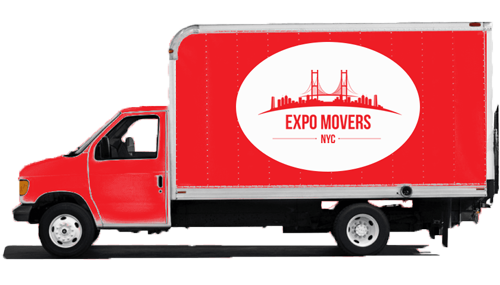One of life’s driving principles is this: you can only control your personal decision-making process. That truth also applies to the business world.
We can only control the decisions made here at Expo Movers. Other moving companies, whether adequately licensed or not, face the same choices.
If you’ve had an unfortunate experience that caused you to suffer economic loss, one of the ways you can potentially recover financially is to sue the moving company in question for damages. Some of the typical reasons for a lawsuit include possession damage or loss, lack of services provided, or another breach of contract.
What Do I Need to Do to File a Lawsuit?

It can be a complex process to navigate a lawsuit if a moving company loses, damages, or refuses to deliver your possessions. Consulting with an experienced attorney in this matter may be helpful. After reviewing your invoices, contracts, and other documents, a lawyer’s professional advice could help you build a case.
Having an attorney on retainer ensures that you have representation in court if your lawsuit reaches that level.
Filing a lawsuit can be a difficult choice, even if you believe a moving company breached the contract. It takes time, effort, and more money to recover what you consider an economic loss.
You may need to file a claim with the moving company in the breach before proceeding with a lawsuit. This step serves as a notification that you have an economic loss that requires addressing. If it gets successfully processed through the agency’s insurance, you may not need to proceed with a lawsuit.
If your claim goes nowhere, the first step is to file a complaint and summons with the local county court. This action starts the litigation process.
The complaint and summons get served to the moving company or their registered agent. Depending on where you live, it may be through a process server, delivered personally, or sent through the mail.
Defendants (the moving company) receives time to file an answer with the court. It has the same caption as your complaint and gets recorded at the same location.
Once you have the initial filing and the answer, the lawsuit proceeds to the discovery phase.
What Does Discovery Do During a Lawsuit?

The discovery portion of a lawsuit allows you and the moving company to request information. This process may include documents, answers to questions, or other pertinent data to resolve the issue.
Some requests come in the form of admissions, asking for denial or admitting specific facts. Interrogatories include detailed questions about the case, while production asks the opposing party for relevant documents.
Anyone who fails to respond to the discovery process faces legal consequences in the lawsuit. A Motion to Compel can request the court to enforce any requests made against the opposing party. Continuing to ignore this process can allow a motion for a default judgment entry, creating an order to pay damages.
When a default judgment gets entered, the defendant has another deadline to dispute or pay the order. Another failure to acknowledge the court could result in a contempt ruling.
What to Expect as an Outcome?

Most lawsuits proceed into mediation, intending to settle outside of the court, including those filed in small claims court.
Some courts require you and the moving company to meet with a mediator before allowing a lawsuit to proceed to trial. If a settlement does occur, it becomes a binding agreement to all parties.
If the lawsuit does go to trial, a judge or jury decides the merits of the cast. Although enforcing that order creates another set of legal issues to consider, the losing party will pay on the judgment.
Before proceeding with the time and cost of a lawsuit, it is essential to review your documentation to see if you can prove a contract breach occurred. If you had an interstate move, reviewing the case for violations of federal or state laws could increase your chances of success.
Most legal issues with moving companies can get resolved with proactive conversations and thorough documentation.
This content is for general information purposes only. It should not be considered a substitute for professional legal advice. If you have a specific question about a particular situation you’re facing, please speak with an attorney.








